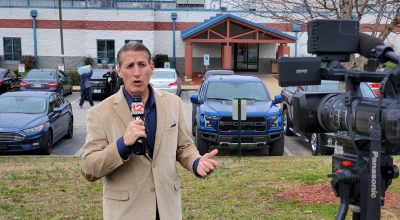
Are police necessary? Although this existential question often produces a knee-jerk ‘of course they are, who would protect us?’ a growing call for the abolition of police — and working examples to back it up — deserves more than scornful dismissal, particularly amid epidemic-level violence by agents of the state.’
By Clare Bernish
Police are under no obligation to protect the public they putatively serve — a series of state and Supreme Court decisions stretching back more than three decades indisputably establish this fact — so the lingering question, ‘who will protect us?’ is of no consequence to the case for dismantling every police department in the nation.
On the contrary, police kill, maim, intimidate, harass, and generally brutalize the citizenry with alarming frequency — and rarely face consequences beyond a paid vacation farcically termed ‘administrative leave’ for doing so.
Rather than fight and solve violent crimes, police act as little more than heavily militarized code-enforcers, or as David Graeber of the London School of Economics aptly terms, “bureaucrats with weapons” — protecting us from broken tail lights, missing front license plates, and imperfect lane changes more often than from robbery, homicide, and rape.
Give police the equipment and weapons of war under the premise of fighting terrorism, when terrorism is all but nonexistent, and predictably, they will go to war. As Abraham Maslow posited in 1966 in a concept known as the law of the instrument, “I suppose it is tempting, if the only tool you have is a hammer, to treat everything as if it were a nail.”
We, the citizenry, are not nails to be forcibly and violently coerced into submission over the tiniest of nonviolent and inconsequential infractions — but, whether or not we’re inclined to admit as much, that summarizes our current situation in the eyes of an overbearing state and its criminalization of, in essence, daily life.
How this police state cinched a noose-like grip on the nation, at this late date, arguably matters little in deference to the urgency it must be addressed. And while solutions run the gamut from individual officer liability insurance to the use of body cameras, forcing an on-call policy akin to that of fire departments to an overhaul of training policies, as it becomes apparent nothing will be done, the larger aforementioned existential question must come into play.
Are police a necessary element in an ordered, peaceful society?
In short, the answer is no — absolutely not — largely because police spend such little time policing anything other than ridiculous laws created solely for the purpose of revenue generation to justify their own existence.
Graeber writes:
“The police spend very little of their time dealing with violent criminals — indeed, police sociologists report that only about 10% of the average police officer’s time is devoted to criminal matters of any kind. Most of the remaining 90% is spent dealing with infractions of various administrative codes and regulations: all those rules about how and where one can eat, drink, smoke, sell, sit, walk, and drive. If two people punch each other, or even draw a knife on each other, police are unlikely to get involved. Drive down the street in a car without license plates, on the other hand, and the authorities will show up instantly, threatening all sorts of dire consequences if you don’t do exactly what they tell you.
“The police, then, are essentially just bureaucrats with weapons. Their main role in society is to bring the threat of physical force — even, death — into situations where it never would have been otherwise invoked, such as the enforcement of civic ordinances about the sale of untaxed cigarettes.”
This overcriminalization of, well, living, has exploded prison populations and adversarial policing to a profoundly negative effect.

